
Essential Vitamins & Minerals Pets Need for Healthy Living
- The Importance of Proper Nutrition for Pets
- Key Vitamins Your Pet Needs
- Important Minerals for Pet Health
- Signs of Nutrient Deficiency in Pets
- How to Supplement Your Pet’s Diet
Just like humans, pets need proper nutrition to thrive. A balanced diet rich in vitamins and minerals plays a crucial role in supporting your pet's overall health and well-being. Proper nutrition helps with everything from maintaining energy levels to supporting their immune system, bone health, and coat condition. Understanding which vitamins and minerals are essential for pets can ensure that they lead a long, happy, and healthy life. In this article, we’ll dive into the essential vitamins and minerals your pets need, how to recognize signs of deficiencies, and how to properly supplement their diet.
Vitamins are organic compounds that are vital for your pet’s health. They support various bodily functions, including metabolism, immune response, and growth. Here are some key vitamins your pet needs:
- Vitamin A: Vitamin A is essential for your pet’s vision, immune system, and skin health. It helps maintain healthy vision and cell growth. You can find vitamin A in liver, eggs, and some vegetables.
- Vitamin D: Vitamin D supports calcium absorption and bone health in pets. It also helps maintain their immune system and muscle function. While vitamin D can be absorbed from sunlight, it is also found in fish oils, liver, and eggs.
- Vitamin E: An antioxidant that helps protect cells from damage, vitamin E plays an important role in your pet's skin, coat, and immune system. It is typically found in oils, nuts, and green leafy vegetables.
- Vitamin C: Although cats and dogs can produce vitamin C naturally, supplementation may be beneficial in certain situations, especially when they are stressed or ill. Vitamin C is known for its immune-boosting properties and its role in collagen formation.
- Vitamin B Complex: A group of vitamins that help with energy production, metabolism, and the nervous system. B vitamins, including B1 (Thiamine), B2 (Riboflavin), B6, and B12, are commonly found in meats and whole grains.
Minerals are inorganic elements that your pet’s body needs for various functions, such as bone formation, nerve function, and muscle health. Here are some important minerals your pets need:
- Calcium: Calcium is critical for strong bones and teeth. It also supports muscle function and blood clotting. Pets can get calcium from dairy products or bones, but too much calcium can be harmful, so it’s important to provide it in the right amounts.
- Phosphorus: Works hand-in-hand with calcium to support bone health. It also plays a role in energy production and cellular function. Meat, poultry, and fish are good sources of phosphorus.
- Magnesium: Magnesium helps with muscle and nerve function, as well as bone health. It’s involved in over 300 biochemical reactions in the body. You can find magnesium in foods like fish, leafy greens, and grains.
- Iron: Iron is essential for transporting oxygen through the bloodstream. An iron deficiency can lead to anemia, which may cause lethargy and weakness. Iron-rich foods include meat, fish, and legumes.
- Zinc: Zinc supports your pet's immune system, skin, and coat health. It also helps with wound healing and cell division. Zinc is found in meat, eggs, and some grains.
A deficiency in essential vitamins and minerals can manifest in various ways. Here are some common signs to watch out for:
- Changes in Coat or Skin: A dull coat, excessive shedding, or dry, flaky skin can indicate a lack of vitamins A, E, or fatty acids.
- Weakness or Lethargy: If your pet is more tired than usual or seems lethargic, it may be due to a deficiency in vitamins B12, D, or iron.
- Bone Problems: Calcium and phosphorus deficiencies may lead to weakened bones, causing problems with walking or climbing stairs.
- Digestive Issues: Digestive problems can indicate a lack of magnesium or a disrupted balance of other nutrients.
If you suspect your pet is lacking essential vitamins or minerals, there are several ways to supplement their diet:
- High-Quality Pet Food: Look for pet food brands that provide balanced nutrition with the right mix of vitamins and minerals. Choose foods with whole ingredients, such as meat, vegetables, and grains, that naturally provide these nutrients.
- Pet Supplements: In some cases, it may be necessary to provide your pet with additional supplements. Talk to your vet before adding supplements to ensure you're providing the right amounts and types of vitamins and minerals.
- Fresh, Whole Foods: Adding fresh foods like cooked vegetables, meat, and eggs to your pet’s diet can provide essential nutrients. However, make sure to avoid foods that are toxic to pets, such as onions, garlic, and chocolate.
Conclusion: Supporting Your Pet’s Health with Essential Vitamins & Minerals
Providing your pet with the right balance of vitamins and minerals is essential for their long-term health and vitality. By ensuring they receive adequate amounts of these essential nutrients, you can support their immune system, promote healthy growth, and prevent various health issues. Always keep an eye on any signs of nutrient deficiencies and consult with your vet to ensure your pet’s diet is optimal. For more pet health tips and recommended products, visit Pet & Puppy for expert advice and top-quality pet nutrition solutions.



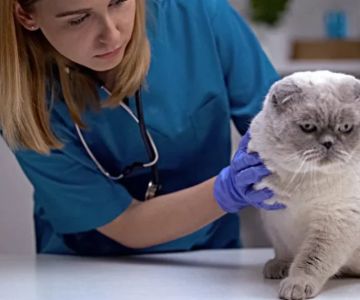
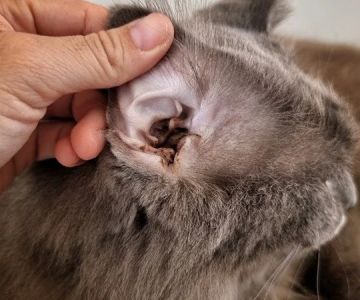
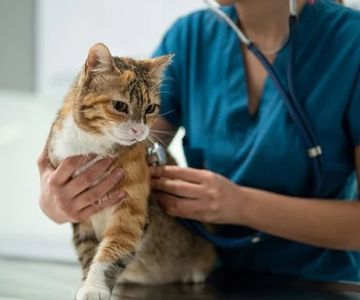

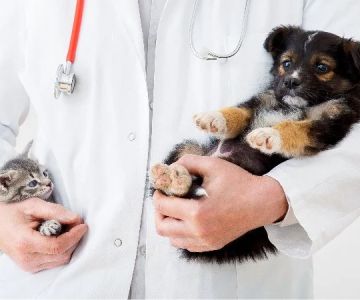
 Dayton Humane Spay & Neuter Clinic4.0 (60 reviews)
Dayton Humane Spay & Neuter Clinic4.0 (60 reviews) Dr. Kelly's Surgical Unit - West Mesa5.0 (1 reviews)
Dr. Kelly's Surgical Unit - West Mesa5.0 (1 reviews) Rainforest Farms International2.0 (45 reviews)
Rainforest Farms International2.0 (45 reviews) Dignity Veterinary Hospital and Mobile Services4.0 (152 reviews)
Dignity Veterinary Hospital and Mobile Services4.0 (152 reviews) Dogwood Animal Clinic Inc4.0 (154 reviews)
Dogwood Animal Clinic Inc4.0 (154 reviews) Spay Neuter Clinic: Glendale4.0 (1185 reviews)
Spay Neuter Clinic: Glendale4.0 (1185 reviews) How 3D Printing Is Being Used in Pet Prosthetics & Surgery | Pet & Puppy
How 3D Printing Is Being Used in Pet Prosthetics & Surgery | Pet & Puppy How to Vet & Interview a Prospective Veterinarian: A Complete Guide for Pet Owners
How to Vet & Interview a Prospective Veterinarian: A Complete Guide for Pet Owners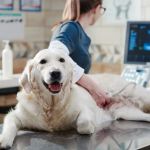 3D Imaging & Pet Diagnostics: What You Should Know
3D Imaging & Pet Diagnostics: What You Should Know Genetic Testing for Pets: What You Can Learn & What’s Useful
Genetic Testing for Pets: What You Can Learn & What’s Useful How to Choose the Right Pet Supplement Brand: Essential Tips for Pet Owners
How to Choose the Right Pet Supplement Brand: Essential Tips for Pet Owners Canine Cognitive Dysfunction: How to Recognize & Manage Pet Dementia in Dogs
Canine Cognitive Dysfunction: How to Recognize & Manage Pet Dementia in Dogs